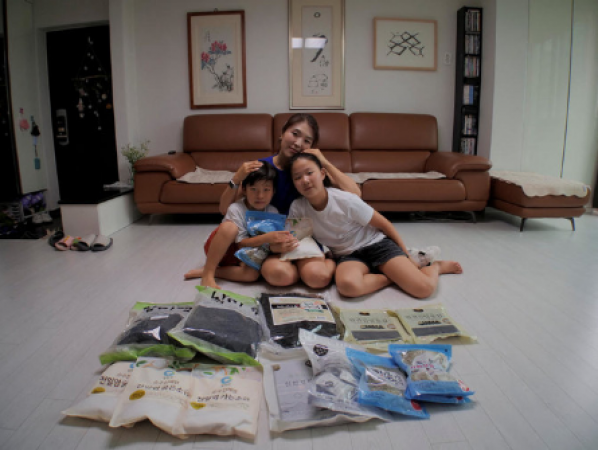
Seoul: Sea salt and other goods are in high demand in South Korea as shoppers become increasingly concerned for their safety as Japan prepares to release more than 1 million metric tonnes of treated radioactive water from a destroyed nuclear power plant into the ocean.
Following an earthquake and tsunami that struck the Fukushima power plant north of Tokyo in 2011, the water was primarily used to cool the reactors that were damaged by the disaster.
Although there is no set date, it is anticipated that the water from the enormous storage tanks will soon be released into the Pacific.
Japan has repeatedly affirmed that the water is safe, claiming that it has been filtered to remove the majority of isotopes even though it still contains traces of tritium, a difficult to separate from water hydrogen isotope.
Also Read: Russia requests that nations abstain from Zelensky's "peace forum"
But in Japan and the rest of the region, fishermen and shoppers are afraid.
Lee Young-min, a 38-year-old mother of two who lives in Seongnam, a city just south of Seoul, South Korea, said as she prepared seaweed soup, "I just bought 5 kilogrammes of salt."
She claimed she had never purchased so much salt before but felt she had to take all the necessary precautions to keep her family safe.
"I can't just sit back and do nothing as a mother raising two kids. To feed them securely is my goal.
Although officials claim that weather and lower production were also to blame, the rush to stock up helped to explain a nearly 27% increase in the price of salt in South Korea in June compared to two months earlier.
Also Read: Strong Support Surges: Majority of Americans Back Sending Weapons to Ukraine, Reveals Reuters Poll
As a result, the government is releasing 50 metric tonnes of salt per day from its reserves until July 11 at a 20 percent discount from market prices, according to Vice Fisheries Minister Song Sang-keun.
According to South Korean fisheries officials, salt farms will be closely monitored for any increase in radioactivity. Seafood from the waters near Fukushima, on the east coast of Japan, has been outlawed in South Korea.
China has also expressed disapproval of Japan's plan to release the water, charging it with a lack of transparency and claiming it poses a danger to the marine environment and the health of people everywhere.
Japan claims that it has explained its plan in great detail and with support from science to its neighbours. Although it wasn't as evident in Seoul shops this week, Japanese Chief Cabinet Secretary Hirokazu Matsuno stated last week that Japan was witnessing growing understanding on the matter.
Also Read: US announces sale of bombs to a member of NATO
Standing by empty supermarket shelves, 73-year-old Kim Myung-ok said, "I came to buy salt but there's none left." The previous time I came, there was none.
"The water leak is concerning. Although we are old and have lived long enough, I worry about the kids.